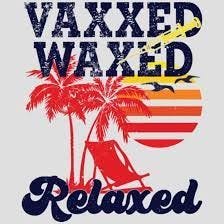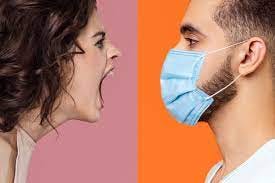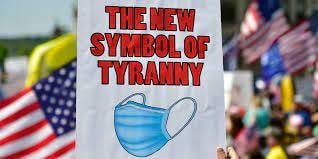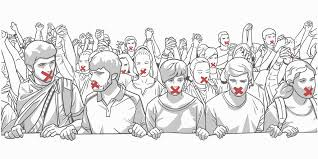Into the Political Wilderness – Part 1
It’s hard to believe that it’s been over three years since the SARS-CoV-2 virus went viral – literally – and our world changed. It’s been a long three circuits ’round the sun. One thing that changed for me – and I know I’m not alone in this – is that I became politically homeless. Once self-identified as firmly in the lefty camp, the pandemic drove me from its warm sense of self-righteous belonging into the wilderness of terra incognita.
In the before times, that innocent age before we knew what an M95 mask was, or could conceive of something like a vaccine passport, or when gathering indoors around a Christmas tree was taken for granted, I generally voted for the Green Party federally – sometimes the NDP if I was feeling unusually centrist. I didn’t really know anyone who voted Conservative, and often asked myself, like many bubble-dwelling liberals, who the hell actually votes for those jerks, anyway?
When the pandemic first ripped into our lives, I unquestionably adopted the positions dictated by my political polarity; doing everything possible to stop the spread of this virus was what people who cared about others naturally did. Evil right-wingers, on the other hand, who had shown for years their blatant disregard for the well-being of others, would logically gravitate to positions that minimized the severity of the virus, and push for less impositions on their personal freedom, in a selfish super-spreading orgy. The Great Barrington Declaration was their manifesto, and it was an abomination.
When good friends of mine voiced support for this declaration and other ideas like it, I was shocked. People so like me, thinking so differently? How was this even possible? When they complained of their ideas being censored, I scoffed. We have a free media and free speech in this country, after all. We don’t do censorship.
If anything, maybe our speech was too free. For a brief period, at the high water mark of my adherence to my tribe’s anti-covid fervour, I even thought this whole free speech thing might be overrated. If free speech could allow people to spout untruths which led to more people dying, was it really such a good thing? Maybe we had something to learn from the way China controlled its citizens’ access to information – weren’t they the envy of the world with their rock bottom covid numbers?
When 40-somethings like me were first given access to a covid vaccine in the spring of 2021, despite it being a dose of bad press plagued AstraZenena, I jumped at the opportunity. The news – which I had started consuming in large doses since the beginning of the pandemic – had been full of dire stories of people my age getting seriously sick and even dying from covid, and to be honest, I was a little freaked. While the side effects from the vaccine were unpleasant, they were compensated for by a sense of relief to be better protected from this nasty virus and also, I must admit, a slight glow of virtuousness for having “done the right thing”. I got my second jab a few months later – this time the much smoother Pfizer vintage.
I was now ready to put this whole disagreeable episode behind me. I had followed all the advice, and done everything I’d been told to do. I was part of the righteous double vaxxed, and so were most of my fellows, so we should be out of the woods, right?

Wrong. The Omicron wave in the fall of ’21 was the first crack in the screen of my projected reality. How could this be happening? Vaccines were supposed to put an end to this, but this zombie virus kept rising from the dead. I learned that the high 90’s percent efficacy of these much-lauded vaccines in reducing hospitalization and death was really only for the first few weeks, and that it declined sharply after that. Moreover, they were even less effective at preventing viral spread from person to person, falling to 21% by this measure against the Omicron variant a mere six months after inoculation. Not only did the vaccines have a very short lifespan, but they did little to stop transmission. (For more on this, read my January 2022 article, World War Covid.) The whole underpinning for a moral imperative to get vaccinated – to protect not just yourself but others too – was shaken. And with it my faith in my political affiliations began to crumble away as well.
I should clarify here that I don’t believe that the covid vaccines were ineffective – they certainly helped protect the vulnerable (provided people kept up with their boosters every few months). But they were oversold in their effectiveness, and they never should have been aggressively pushed on the entire population in some quixotic quest for herd immunity. Leaving aside for now the fact that the mRNA vaccines are a totally novel technology – never administered to humans until two and a half years ago – for which the long term effects are unknown, and mass vaccination basically amounts to a calculated roll of the dice for the entire population (but surely there have never been unintended side effects from medical interventions before, right?), the intense top-down pressure for literally everyone to get vaccinated (even 6 month olds) created unnecessary social divisions, resentment, and swelled the ranks of those who already distrusted vaccines specifically and “expert” or state authority in general.
If center/left governments had misled us so much about vaccines, what other parts of covid policy had they gotten wrong? Certainly the vaccine passport system and mandates now seemed off the table. The decision to get vaccinated had become a personal choice, not a social one. One could argue that you still should get vaccinated to relieve your potential burden on an over-capacity health care system, but wasn’t that the fault of years of government under-funding? Society had failed to adequately fund its health care system, and now a small group of people were being asked to sacrifice their beliefs for a society that had failed to sacrifice their tax dollars.
I didn’t know it back at the end of 2021, but later research has shown the questionable appropriateness of everything from mask mandates to school closures to border restrictions to lockdowns (this paper claims that lockdowns “may claim 20 times more life years than they save”), citing their ineffectiveness relative to the collateral damage they did to people’s well-being in other aspects of their lives. Governments had carefully prepared pandemic preparedness plans prior to covid (which did not include lockdowns), but in the hysteria of the moment, they threw them out the window and zealously followed every idea for how we might potentially beat back this disease by any margin to their logical conclusions, ignoring a whole suite of negative side effects that these ideas brought forth.
But there was what you might call a moral panic about covid – particularly towards those who were seen as causing the disease to spread: the unvaccinated, the unmasked, the noncompliant. We literally accused them of murder. Noam Chomsky, that hero of the left and of mine, said that the unvaccinated should be “isolated” from society, and that getting food to them is “their problem”. Those who questioned the official response to covid were vilified beyond any reasonable measure, egged on by a Prime Minister who said the unvaccinated were often “misogynists” and “racists” and “unfit parents”. They lost their jobs, were barred from whole spheres of public life, were prevented from traveling, and were even threatened with fines by Quebec Premier François Legault. Instead of pulling together to fight the common enemy of covid, like we did early in the pandemic, we did what humans usually do when afraid: find a scapegoat group and viciously attack. And our politicians, who feed on division, were only too happy to capitalize.
How ironic that a virus that infects everyone can divide us so.

BOTTOM-UP CENSORSHIP MAY BE NEARLY AS BAD AS TOP-DOWN
As my views on the official response to covid shifted, I began to discern the outlines of the particular form that censorship can take in our liberal, open society. The mainstream media, gutted by loss of ad revenues since the rise of the internet, had also largely abdicated its role as a critical eye towards government policy. The age of the scrappy reporter was over; the few remaining journalists were more concerned with not rocking the boat and holding on to a precarious job than raking politicians over the coals. Media organizations had lost the capacity to do investigative journalism and largely accepted government pronouncements unquestioningly. The watchdog was old and gone to sleep.
There is also the question of political leanings, which inevitably creep into newsrooms, even when good efforts are made towards objectivity. I used to wonder why conservatives always complained about the “liberal media” when it was obviously right-wing. It was controlled by wealthy publishers and funded by corporate advertising, after all.
But now, I began to see that maybe conservatives had been right all along, and that most of the people who work in the media actually do share a generally liberal worldview. According to a 2020 article in Science Advances, 60% of US journalists surveyed self-identified as Democrat, 17% as Republican, and 23% as independent. This shouldn’t come as a surprise, since most journalists are both college educated and urban dwellers, two demographics strongly correlated with liberal political worldviews. Even at the uber-capitalist Wall Street Journal and other financial publications, left-of-centre journalists arguably outnumber their right-wing counterparts 13 to 1.
The Science Advances article, it should be noted, contends that this partisan imbalance does not translate into biased media reporting. But media bias can be hard to measure. And it stretches credibility to believe that – humans being humans – even with the best of intentions towards impartiality, such an extreme tilt towards one side of the political spectrum among the practitioners of the media does not inform to some extent their coverage. It casts journalists as somehow superhuman, immune to the cognitive biases that science has repeatedly shown we are prone to.
It wasn’t always this way. Back in 1956, newspapers were perceived as fair by more Republicans than Democrats, and were overall seen as fair by 66% of Americans. In the 1970’s, Walter Cronkite’s nightly newscast on CBS was trusted by 72% of viewers. But it’s been all downhill from there. A 2020 Gallup poll found that, for the first time ever, more people had zero trust in the media than had “a great deal” or “fair” amount combined (38% versus 34%). And while both Democrats’ and Republicans’ trust declined for decades, Democrats’ confidence rebounded sharply right around the election of Donald Trump at the same time as Republicans’ plummeted; a whopping 70% of Democrats now say they trust the media, versus a mere 14% of Republicans.

Is it that Republicans’ beliefs have spun so far outside the mainstream that regular centrist media can no longer reach them? Or has their mistrust sprung from the fact that the media failed to see the appeal of Donald Trump’s message to certain groups, and then when he was elected, turned on him with an obsessive vitriol never seen before? Even as someone who is no fan of Trump, I was struck during his presidency by the constant drumbeat of negativity towards him from the media. Many in the press no longer believed they could or should cover Trump the way they had always covered past US presidents; they saw it as their civic duty to attack this imposter to the throne who might start a nuclear war just because he was having a bad day. Liberal voters, shocked that someone such as Trump was occupying the Oval Office, rallied behind a media establishment intent on criticising his every move, while Trump supporters migrated to Fox News or even more extreme media outlets.
Trump’s surprise election was the final step in the complete polarization of US media. It was now divided into two warring camps, each side not believing a word said by the other, if they even bothered to read it. Two collections of “facts” contradicting each other. The country roughly split in half by two separate realities. And when covid came along, the two sides had to quickly choose opposing viewpoints. It mattered less which side they chose than that they were in sharp disagreement.
“Schismogenesis” is the term used to describe the common phenomenon of groups defining themselves by their differences. Canadians love to define themselves by their publicly funded healthcare system, precisely because the US system is much less universal. In the same vein, if liberals were pro-masking, then conservatives had to be anti-mask, and vice-versa. And moreover, their positions on masking defined what kind of person they were: from the liberal point of view, a responsible member of society versus an anti-science sociopath; from the conservative point of view, a free-thinking guardian of personal liberties versus a cowed sheep blindly following the dictates of an oppressive state.

I was surprised at first that conservatives did not embrace the opportunity covid provided; it seemed to play to their concerns about safety and security, about rule-following and border restrictions. But maybe I was still thinking about an older sort of conservative. In the end, perhaps all it took was for Trump, ironically a self-confessed germaphobe, to take a somewhat dismissive tone towards this new germ to set the trend for all other conservatives to fall in line.
The mainstream press, being at war against all things Trump, naturally had to take a hard line on this new war against covid. To oppose mandates around masks, vaccines, and lockdowns became heresy. To even question these core tenets was an irresponsible misuse of one’s mouthpiece as a journalist. What if it caused the masses to question things, and that led to non-compliance, and that led to more deaths? Self-reinforcing group-think spread from newsrooms to the general population and back again.
Adding fuel to fire was the fact that journalists graduating from college these days increasingly see their work as a mission to influence their readers and change the world. Being an impartial voice is boring and impersonal. Everyone wants to be a star. And postmodernism teaches them that impartiality is impossible and objectivity an illusion anyway. Some newspaper editors are now openly questioning whether they should even be striving for journalistic objectivity anymore – an ideal only about a century old, and never perfectly implemented.
But the political bent of the mainstream media has made them bad journalists. When the Hunter Biden laptop story emerged during the run-up to the 2020 US presidential election, in which an email seemed to show then vice-president Joe Biden using his political office to advance the business interests of his son, they dismissed it as Russian disinformation, because they couldn’t stomach reporting on anything that might damage the man hoping to unseat Trump, despite the fact that the story had real legs. Both Twitter and Facebook joined in the censorship by blocking the spread of the story on their platforms. It was only well after Biden’s election that the mainstream press started to take the story somewhat seriously.

Earlier, the same media had been all too eager to believe someone who had claimed knowledge of a video showing Trump watching two prostitutes peeing on a bed that the Obamas had supposedly slept on in a Moscow hotel room – a video that was now supposedly being used to blackmail the then presidential candidate and make him a stooge of the Kremlin. No evidence for this “pee tape” or incident was ever found.
Another case study is the lab-leak hypothesis. When this idea first emerged, it was quickly smacked down by a letter written by a group of “experts”. Never mind that the mastermind of this letter, Peter Daszak, was the president of a non-profit that had received millions of dollars in grants from the US government to study viruses with pandemic potential and had subcontracted some of that work to the Wuhan lab in question; the media bought this denial hook, line, and sinker, and “lab-leak hypothesis” was quickly synonymous with “conspiracy theory” in most people’s minds. Only the sheer weight of evidence pointing towards this as a real possibility for the origin of covid has pried the media’s willingness to seriously consider it back open in recent months. The credulous acceptance of anything uttered by a person with a PhD, regardless of their potential economic incentives, is part of the mistake establishment journalists keep making; another is letting ideology cloud rational thought: if Trump blamed China for covid, then any idea that might lend credence to that opinion must be wrong (even though the coronavirus research at the Wuhan Institute of Virology was funded by an American organization, making the US equally complicit).
All of this is to try to explain how a form of self-censorship groupthink played out in our supposedly open-media society. It would have been so much easier to explain the kind of top-down authoritarian censorship we are all familiar with. Some conservatives like to claim that this is what’s happening with the Canadian government-funded CBC, but it’s not that simplistic. Fortunately we do not live in that kind of 1984 world, and our version of censorship is less complete. But it does have a significant effect. Especially when you also consider how social media got on board.

After Facebook and its peers were accused of allowing Russian fake news to run rampant on their platforms, thus paving the way for the seemingly impossible election of Donald Trump (in the liberal worldview, it was unthinkable that someone such as him could have won without some form of massive foreign interference), social media got serious about moderation. The threat of government regulation was a pecuniary threat to big tech, and they wanted to remain in the legislators’ good books. So if the government wanted to push pro-mask and pro-vaccine messages, social media would be a loyal ally (see the Wall Street Journal’s The White House Covid Censorship Machine).
I personally had a run in with this form of censorship recently, when I posted to my Facebook feed an opinion piece from the New York Times about a new scientific report that basically concluded that mask mandates had been completely useless. My post was soon flagged by Facebook moderators as “lacking context” and that it could be misleading. While on the one hand I’m pleased that Facebook is encouraging its users to think more critically about what they read, the inconsistency of its application is a problem, targeting a small range of issues, mostly around covid policy, and only flagging posts from one side of that debate. And besides, of course it lacked context – it was an opinion piece. The point of opinion writing is to argue a certain position, not provide an airing of all points of view. When Facebook flags something that was published in the New York Times – probably the most prestigious media outlet in the world – we can only assume that free expression is in deep trouble on that platform.
Click here to keep reading Part 2.
The post Into the Political Wilderness – Part 1 first appeared on Sean Butler.

